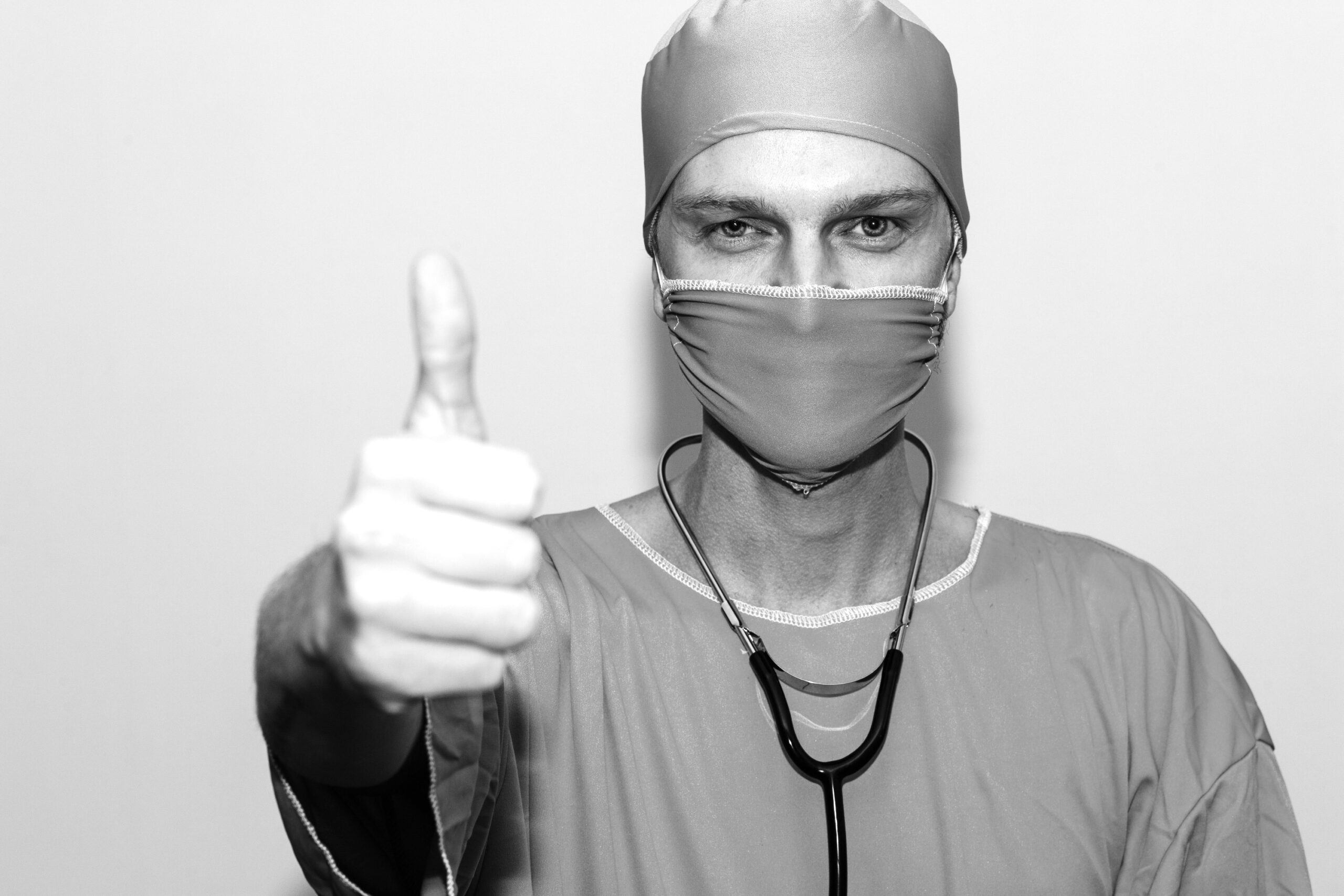GMC guidance: Consultants could and should have gone to the police in Summer 2015
Formal complaints against the four COCH consultants may be warranted on the basis that by ignoring GMC guidance pertaining to concerns about patient safety they did not do what they were empowered and encouraged to do to help prevent four deaths and seventeen near deaths
Update on reporting restrictions: I have not sought legal advice about what the reimposition of reporting restrictions means for what I can write in relation to Lucy’s case but I have spoken to someone who knows about these things. The test is whether a published report poses a “substantial risk of serious prejudice.” The trial to which the reporting restrictions pertain is a year or so away (it hasn’t even started!) Also, this article is about the General Medical Council (GMC, see note 1) and the behaviour of consultants at the Countess of Chester, not Child K (the case being retried).
On 10 October, the BMJ published a letter (https://www.bmj.com/content/383/bmj.p2305) from retired general practitioner Glyn Phillips titled Letby case: why did no-one contact the police earlier? The letter is reproduced below (note 2) but Dr Phillip’s message is that GMC guidelines are restrictive when it comes to its members reporting suspected criminality at a hospital to the police. This restriction, Dr Phillips suggests, is the reason the four consultants did not report their concerns that they had about Letby as early as June 2015 following the deaths of three babies that month (a particularly high number compared to the average of around 2 per year) to Cheshire Constabulary.
Instead, it was left to the hospital authorities to report the consultants’ concerns to the police nearly two years later, during which time Letby allegedly murdered a further four babies and attempted to murder a further nine on fourteen occasions (seventeen including the three attempts on the baby Letby eventually succeeded in murdering). Can it really be correct that the consultants could not have sought to prevent these deaths and near deaths by going to the police when they first associated Letby with the incidents, and indeed had identified injection of air as her modus operandi, in June 2015?
Let’s take a look at the GMC code of conduct, Good Medical Practice, to which Dr Phillips refers in his letter, as well as to another GMC document, Raising and acting on concerns about patient safety. The relevant clauses are included in full in Note 3 below.
It is clear from the two documents that the consultants could and should have gone to the police with their concerns about Letby. It is clearly stated that doctors should:
contact a regulatory body such as the General Medical Council (GMC) or another body with authority to investigate the issue (such as those listed at the end of this guidance) in the following circumstances.
a If you cannot raise the issue with the responsible person or body locally because you believe them to be part of the problem.
b If you have raised your concern through local channels but are not satisfied that the responsible person or body has taken adequate action.
c If there is an immediate serious risk to patients, and a regulator or other external body has responsibility to act or intervene.
‘The police’ is not in the list of possible “bodies with authority to investigate” referred to but it is not an exhaustive list (note the use of the words ‘such as’). Surely if multiple murder is suspected, which it was (consultant Brearey noted an association between the three deaths in June and Letby in late June/early July 2015 while consultant Jayaram identified injection of air as Letby’s modus operandi around the same time) and the three criteria above were satisfied, which they were (see note 4 for details of the various television interviews with consultants that were broadcast in the wake of the verdicts being announced on 15 August in which they clearly laid the blame at the feet of the hospital management for ignoring their concerns), the obvious “body with authority to investigate” was the police.
(Jayaram also appears to not remember when he found the paper Pulmonary Vascular Air Embolism In The Newborn that he realised explained Letby’s modus operandi. On 24 October 2022 he testified that it was in June 2015 . On 22 February this year he testified it was in June 2016 . Which is it, Ravi? See Note 5 for more detail of Jayaram’s inconsistent testimony).
It is also clear that the doctors could have gone public with their concerns too:
You can consider making your concerns public if you:
a have done all you can to deal with any concern by raising it within the organisation in which you work or which you have a contract with, or with the appropriate external body, and
b have good reason to believe that patients are still at risk of harm, and
c do not breach patient confidentiality.
It is clear that the consultants were empowered and, in the circumstances, encouraged by the guidelines to contact both the GMC and bodies with authority to investigate which would have included the police.
One other way in which they could have conveyed concerns about Letby, one which would not have involved first speaking to hospital management, was to raise their suspicions with the coroner, Nicholas Rheinberg. There is no reference in any of the hundreds of media reports on the trial of them having done this. Indeed, according to The Times article Damning email told of ‘chaos’ on Lucy Letby ward:
Letby also managed to slip through the gaps in the coronial system. Hospital managers asked the Cheshire coroner, Dr Nicholas Rheinberg, to investigate the seven baby deaths in February 2017. The coroner declined, according to sources, telling the trust he was not a “quality-assurance service” for the NHS. Rheinberg retired that year.
Finally, insulin. The alleged poisoning by Letby with insulin of Babies F and L took place, respectively, in August 2015 and April 2016. The first of these was two months after Brearey had noticed an association between Letby and the three deaths in June, and Jayaram had “alighted” upon her modus operandi, injection with air. By the second poisoning, Brearey had had an email exchange in October about his suspicions about Letby with neonatal unit manager Eirian Powell and in February 2016 had convened a half-day thematic review into the deaths and collapses with the help of Consultant Neonatologist at Liverpool Women’s NHS Foundation Trust, Dr Nimish Subhedar.
The test for insulin that the two babies underwent was this one, http://pathlabs.rlbuht.nhs.uk/insulin.pdf, which clearly states, “Please note that the insulin assay performed at RLUH is not suitable for the investigation of factitious hypoglycaemia. If exogenous insulin administration is suspected as the cause of hypoglycaemia, please inform the laboratory so that the sample can be referred externally for analysis” (red in document, not mine).
Given a) the consultants’ concerns that their hospital harboured a serial killer, b) the insulin assay could not be used to test for exogenous insulin (possible poisoning), and c) the clear guidance to inform the lab “if exogenous insulin administration is suspected as the cause of hypoglycaemia” so the samples could be “referred externally for analysis”, one would have expected the consultants to follow the assay’s guidance. They didn’t.
If suspected murder and attempted murder are not reasons to go to the GMC, the police, other bodies with “authority to investigate”, the coroner, another laboratory, what are?
Despite their concerns that a nurse was killing babies under their care, their experience, their expertise, and the very fact that one of them in June 2015 had “alighted” on the method Letby had used to kill three babies, the four consultants were somehow not able to provide the hospital management with a single piece of medical evidence of Letby’s criminality. This contrasts, strangely, with the reams and reams of medical evidence presented at trial by the seven prosecution medical experts.
Although Lucy’s conviction relied firstly upon the consultants’ alleged suspicions and secondly upon the later formal endorsement of them by the prosecution experts, this article is not about the latter. It is about why the four consultants did not follow GMC guidance nor report their suspicions to the coroner, action that might well have prevented four deaths and seventeen near deaths (Brearey could also not remember whether it was late June or early July 2015 when he raised concerns about Lucy’s apparent link to the three deaths in June. So, he obviously did not keep a record, another breach of GMC guidelines that tell doctors to “keep a record of your concern” per Part 1, 15 below).
If I was a parent of one of the thirteen babies that died or nearly died as a result of the consultants’ lack of action, I would be very angry. If I was a doctor, I would feel a duty to speak up and denounce the consultants’ lack of action. There are 374,850 doctors in the UK registered with the GMC. Let’s see how many of them are prepared to do so.
Notes
Note 1: The General Medical Council (from https://en.wikipedia.org/wiki/General_Medical_Council)
The General Medical Council (GMC) is “a public body that maintains the official register of medical practitioners within the United Kingdom. Its chief responsibility is to “protect, promote and maintain the health and safety of the public” by controlling entry to the register, and suspending or removing members when necessary”.
Note 2: Letter from retired general practitioner Glyn Phillips titled Letby case: why did no-one contact the police earlier? published in BMJ, 10 October 2023 (from https://www.bmj.com/content/383/bmj.p2305)
A 10 year journey “to reform organisational culture so managers and clinicians work more symbiotically” is neither necessary nor acceptable. At least one of the four consultants in the Lucy Letby case has stated that in retrospect he wishes they had bypassed management. He agreed in court with the point made by Letby’s defence barrister that they were all grown adults who could have gone straight to the police. An investigation of the matter by suitably experienced officers could have prevented some deaths.
In hindsight it seems astonishing that an earlier referral to the police did not occur. Why did four experienced consultants not feel able to contact the police? Why did nursing colleagues of Letby not feel they could raise concerns with the police directly? It seems likely that the consultants were being bullied into “drawing a line under the matter.” The threat of their being referred to the General Medical Council was weaponised. This is possible because many doctors do not trust GMC processes or its ability to come to correct decisions. While management sought to protect the reputation of the trust, the doctors probably wanted to protect their own professional reputations.
It’s also possible because the option (responsibility) to go directly to the police is not available in the GMC code of conduct, Good Medical Practice. The only mention of the word “police” is in relation to a doctor being obliged to inform the GMC should they receive a police caution. The word “police” is not mentioned anywhere in the Nursing and Midwifery Council code of professional standards.
This perceived restriction on reporting unanswered concerns directly to the police should be remedied by the GMC and the NMC. A simple explanatory clause could easily be included stating that when serious concerns of criminal activity exist, obstructed by management inactivity, then the registered practitioner “must” report the matter to the police.
Note 3: Relevant clauses in Good Medical Practice and Raising and acting on concerns about patient safety pertaining to reporting of concerns about patient safety.
From Good Medical Practice:
24.c: If you have concerns that a colleague may not be fit to practise and may be putting patients at risk, you must ask for advice from a colleague, your defence body or us. If you are still concerned you must report this, in line with our guidance and your workplace policy, and make a record of the steps you have taken.
From Raising and acting on concerns about patient safety:
Part 1: Raising a concern
Duty to raise concerns
7 All doctors have a duty to raise concerns where they believe that patient safety or care is being compromised by the practice of colleagues or the systems, policies and procedures in the organisations in which they work. They must also encourage and support a culture in which staff can raise concerns openly and safely.
8 You must not enter into contracts or agreements with your employing or contracting body that seek to prevent you from or restrict you in raising concerns about patient safety. Contracts or agreements are void if they intend to stop an employee from making a protected disclosure.
Overcoming obstacles to reporting
9 You may be reluctant to report a concern for a number of reasons. Fo example, because you fear that nothing will be done or that raising your concern may cause problems for colleagues; have a negative effect on working relationships; have a negative effect on your career; or result in a complaint about you.
10 If you are hesitating about reporting a concern for these reasons, you should bear the following in mind.
a You have a duty to put patients’ interests first and act to protect them, which overrides personal and professional loyalties.
b The law provides legal protection against victimisation or dismissal for individuals who reveal information to raise genuine concerns and expose malpractice in the workplace.
c You do not need to wait for proof – you will be able to justify raising a concern if you do so honestly, on the basis of reasonable belief and through appropriate channels, even if you are mistaken.
Steps to raise a concern
11 You must follow the procedure where you work for reporting adverse incidents and near misses. This is because routinely identifying adverse incidents or near misses at an early stage, can allow issues to be tackled, problems to be put right and lessons to be learnt.
12 If you have reason to believe that patients are, or may be, at risk of death or serious harm for any reason, you should report your concern to the appropriate person or organisation immediately. Do not delay doing so because you yourself are not in a position to put the matter right.
13 Wherever possible, you should first raise your concern with your manager or an appropriate officer of the organisation you have a contract with or which employs you – such as the consultant in charge of the team, the clinical or medical director or a practice partner. If your concern is about a partner, it may be appropriate to raise it outside the practice – for example, with the medical director or clinical governance lead responsible for your organisation. If you are a doctor in training, it may be appropriate to raise your concerns with a named person in the deanery – for example, the postgraduate dean or director of postgraduate general practice education.
14 You must be clear, honest and objective about the reason for your concern. You should acknowledge any personal grievance that may arise from the situation, but focus on the issue of patient safety.
15 You should also keep a record of your concern and any steps that you have taken to deal with it.
Raising a concern with a regulator
16 You should contact a regulatory body such as the General Medical Council (GMC) or another body with authority to investigate the issue (such as those listed at the end of this guidance) in the following circumstances.
a If you cannot raise the issue with the responsible person or body locally because you believe them to be part of the problem.
b If you have raised your concern through local channels but are not satisfied that the responsible person or body has taken adequate action.
c If there is an immediate serious risk to patients, and a regulator or other external body has responsibility to act or intervene.
Making a concern public
17 You can consider making your concerns public if you:
a have done all you can to deal with any concern by raising it within the organisation in which you work or which you have a contract with, or with the appropriate external body, and
b have good reason to believe that patients are still at risk of harm, and
c do not breach patient confidentiality.
But, you should get advice (see Help and Advice below) before making a decision of this kind.
Help and advice
18 If you are not sure whether, or how, to raise your concern, you should get advice from:
a a senior member of staff or other impartial colleague
b the GMC’s Confidential Helpline
c your medical defence body, your royal college or a professional association such as the British Medical Association (BMA)
d the appropriate regulatory body listed at the end of this guidance if your concern relates to a colleague in another profession, or other relevant systems regulators if your concern relates to systems or organisations rather than individuals
e Public Concern at Work – a charity which provides free, confidential legal advice to people who are concerned about wrongdoing at work and are not sure whether, or how, to raise their concern.
Note 4: TV interviews with the COCH consultants in the wake of the verdicts being announced on 15 August (interviews with Evans, Bohin, and Rees as well as Cheshire Police’s Operation Hummingbird documentary added to the list):
Dr Stephen Brearey BBC Interview (Clips): https://www.youtube.com/watch?v=Txw2Cj8GJQQ (Brearey, BBC)
Warnings about Lucy Letby weren’t acted on – says doctor who worked with serial killer nurse: https://www.channel4.com/news/warnings-about-lucy-letby-werent-acted-on-says-doctor-colleague-in-first-interview & https://www.youtube.com/watch?v=2HsWAZYUNEU (Gibbs, Channel 4)
Lucy Letby: Hospital doctor criticises management: https://news.sky.com/story/lucy-letby-case-whistleblowing-doctor-accuses-hospital-management-of-potentially-facilitating-a-mass-murderer-12942418 & https://www.youtube.com/watch?v=GJYUK1wdHJI (Gibbs, Sky News)
‘Babies could’ve been saved’: Doctor who helped catch Lucy Letby blames hospital | ITV News: https://www.itv.com/news/2023-08-18/babies-couldve-been-saved-doctor-who-helped-catch-lucy-letby-blames-hospital & https://www.youtube.com/watch?v=2jnDr5EIpmY (Jayaram, ITV)
Doctor who helped catch Lucy Letby calls for full public inquiry: https://www.itv.com/news/2023-08-21/doctor-who-helped-catch-lucy-letby-calls-for-full-public-inquiry# & https://www.youtube.com/watch?v=VsB3_9H3ksA (Jayaram, ITV)
BBC Panorama – Lucy Letby: The Nurse Who Killed: https://www.bbc.co.uk/iplayer/episode/m001q7dl/panorama-lucy-letby-the-nurse-who-killed & https://www.youtube.com/watch?v=yo13E3YwvBg (Brearey, police et al)
The Man Who Took Down Evil: https://talk.tv/news/26246/lucy-letby-angel-of-death-was-an-extremely-clever-criminal (Evans, TalkTV)
Lucy Letby – the untold story from the key prosecution expert witness – Dr Dewi Evans talks to Dr Raj Persaud: https://rajpersaud.libsyn.com/lucy-letby-the-untold-story-from-the-key-prosecution-expert-witness-dr-dewie-evans-talks-to-dr-raj-persaud (Evans, Raj Persaud podcasts)
Lucy Letby: Paediatrician who gave evidence in child killer’s trial joins calls for public inquiry: https://www.itv.com/news/channel/2023-08-22/paediatrician-who-gave-evidence-in-letby-trial-joins-calls-for-public-inquiry & https://www.youtube.com/watch?v=2VHSpCaR4YY (Bohin, ITV)
Ex-nursing boss speaks out on claims she refused to remove Lucy Letby from neonatal unit: https://www.itv.com/news/granada/2023-08-22/ex-nursing-boss-wasnt-given-enough-information-to-remove-lucy-letby & https://www.youtube.com/watch?v=BWtMEGesEIs (Rees, ITV)
Cheshire Police – Operation Hummingbird documentary (no longer available on YouTube): https://1drv.ms/v/s!AiV2u7y3BGn0jJId6DfVKhwW2zsRzw?e=eUt9qo
Note 5: Jayaram’s inconsistent testimony
From Consultant tells trial skin marks ‘didn’t fit with anything he’d seen’ (The Independent, 24 October 2022):
He [Jayaram] said that some time after Child D’s death [22 June 2015] he “alighted” on a research paper entitled Pulmonary Vascular Air Embolism In The Newborn [1989].The medic said it described a series of accidental events of air embolism – where a blockage in the passage of blood occurs – and a similar pattern of discolouration…..The consultant said that around the time of Child A’s inquest a group of clinicians had begun to raise concerns to hospital bosses about the “association we had seen with an individual being present in those situations and, how do I say diplomatically, being told we really should not really be saying such things and not to make a fuss”.
From Lucy Letby: Dr had ‘physical chill’ over baby events, trial told (BBC, 22 February 2023):
“On 29 June 2016, after a number of further unusual, unexpected and inexplicable events on the neonatal unit, the whole consultant body sat down and thought we have to work out what’s going on here. One of the things that came up in discussion was could this be air embolism, I can’t remember who suggested it.” Dr Jayaram said after the meeting he went home and did a searched for literature on the subject, eventually finding a research paper from 1989. He said: “I remember sitting on my sofa at home with my iPad, researching. I remember the physical chill that went down my spine when I read that, because it fitted with what we were seeing.”
Other links:
NHS: Post-mortem
https://www.nhs.uk/conditions/post-mortem/
NHS England: The national medical examiner system
https://www.england.nhs.uk/establishing-medical-examiner-system-nhs/
Implementing the medical examiner system: National Medical Examiner’s good practice guidelines
When a death is reported to a coroner
https://www.gov.uk/after-a-death/when-a-death-is-reported-to-a-coroner
NI Direct Government Services: Coroners, post-mortems and inquests
https://www.nidirect.gov.uk/articles/coroners-post-mortems-and-inquests
The Coroners’ Society of England & Wales (CSEW): FAQs
https://www.coronersociety.org.uk/faqs/
The Coroners’ Society of England & Wales (CSEW): Links
https://www.coronersociety.org.uk/links/
The Timeline of the Conspiracy
Is the NHS ready for PSIRF? A blog by Chris Elston
Oct 31, 2023
I received an email from the BMJ today informing me that my letter referred to above has been removed for ‘legal reasons’.
LikeReply
Oct 15, 2023
Why didn’t the consultants contact the police sooner? It’s a very important question. Because paediatricians are also responsible for reporting sudden and unexpected neonatal deaths to the coroner.
If there are any concerns of deliberate harm, in such circumstances, the police would be informed. After information gathering, a forensic autopsy would be performed.
Not one of these babies had a forensic autopsy.
None of the deaths were recorded as murder.
This is where the doctors fail – according to their own accounts. These deaths were sudden and unexpected. And according to their evidence, and media interviews they suspected deliberate harm. They reported this ‘deliberate harm’ after the fact. After the autopsies. Whichever way you look at it; it’s a failure to protect isn’t it?Show Less
LikeReply

5 LikesView 1 reply
Oct 15, 2023
Thanks so much for this, and all your articles, Peter. Regarding the insulin aspect – it’s not until 2018 that Brearey ‘finds’ these test results, I understand. From this we might infer that what became on the indictment babies F and L were not seen by Evans as ‘crashes’ – and so were not in any way flagged up in the system – and it was only when Brearey goes looking for more ‘evidence’ or what have you – perhaps to bolster the air embolus – the smoking gun, as it were – that these cases become apparent and are then merged into the case. Not sure what drew Brearey to go hunting in this way, if these babies had not deteriorated at the time to a degree to even warrant sending their med notes to Evans in July 2017. Do you mean in your article that Brearey and co shd have been on heightened alert for any anomolies in test results for all babies at all times? Well, yes, they should – but clearly the were not. It’s only in 2018 that Brearey appears to want to go on a retrospective trawling exercise and ‘discovers’ these (highly unreliable) blood test results.
© Chimp Investor Ltd







